Pokemon Go is a lot of things.
 It came out Wednesday and Sam and Alisha quickly pointed out the flaws in the representation provided by the game, with good reason. In a game that was slated to let “us,” the player, be in the Pokemon world, and be the very best, the avatars leave much to be desired. Even my partner, the standard definition of white privilege (except he’s poor as dirt) doesn’t look right. The closest avatar he could make to himself made him look like Roxas from Kingdom Hearts II. For the record, my partner does not look like Roxas from KHII. Pokemon X and Y seemed like a step toward diversity, or at least a step sideways. But this is a step back.
It came out Wednesday and Sam and Alisha quickly pointed out the flaws in the representation provided by the game, with good reason. In a game that was slated to let “us,” the player, be in the Pokemon world, and be the very best, the avatars leave much to be desired. Even my partner, the standard definition of white privilege (except he’s poor as dirt) doesn’t look right. The closest avatar he could make to himself made him look like Roxas from Kingdom Hearts II. For the record, my partner does not look like Roxas from KHII. Pokemon X and Y seemed like a step toward diversity, or at least a step sideways. But this is a step back.
And, of course, us nonbinary folk aren’t in the game at all. Of course not. At first I was elated because Willow said “choose your style” so I thought I could mix and match, but of course not, it’s are you a Boy or a Girl again. Or! I’m Or! Actually I’m neither.
Pokemon Go is a lot of things. It doesn’t represent anyone, not really, but it especially erases disenfranchised populations again. People of Color and Transfolks are not in this game. They don’t get to be Pokemon masters. Once again, they don’t get to exist. Kotaku also posted an article on Saturday that brought up something people of color have been saying all week. “Pokemon Go could be a death sentence for a Black Man.” And as Alisha pointed out in the last podcast that if you can’t even be seen as human, as worth existing, in a video game, how can you remind people you are human in the real world?
Pokemon Go is a lot of things. I’ve done nothing but be happy and sad about this game since it came out. It doesn’t take much to show me my privilege. I may be trans, but I can pass as the straightest, whitest, cisgender woman you’d ever meet. Just by walking down the street. And so, my male avatar with blue hair (which would have been named Roin, like all my male Pokemon protagonists, had the game allowed me) isn’t me, but at least I get to play.
At least my partner and I walking the trails and through our neighborhood at dusk looks like two white people on a walk, with their phones out. No one really gives us a second look. Sure, we stop suddenly, or I squeak really loud when I see an Eevee, but overall, we’d not be thought of as dangerous. Not typically.
My partner and I walking together are “friends” or “on a date” or whatever crosses white people’s minds when they see two other white people. I don’t think a person of color walking alone would get the same privilege. Or, if they would walk in a group, like the game encourages you to, how long before they got the police called on them for “gang activity?” And you have to have your phone out. How long before someone says it’s a gun? Or that you’re eyeing up their house or car? Or that someone is shot for trespassing? Intentions will be questioned even more for people of color.
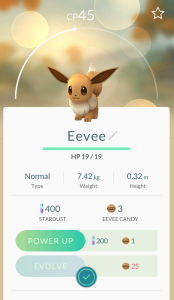 Pokemon Go is a lot of things. It doesn’t allow me to be in the game, not one bit, but it did something and is doing something for the people who have the privilege to play. Because I’ve spent the last month fighting off depressive episode after depressive episode, and finally this week, it reached another tipping point. And I was doing nothing but laying on the floor in a blanket cocoon wanting to not exist. “But Jynx,” my partner said, putting on shoes. “There’s an Eevee outside. Let’s try to get it.” And I’m leaving the house for the first time in a while, trailing after my partner, who is seven again, chasing an Eevee, or a Scyther, or a Ghastly. My partner is getting exercise, for the first time in awhile. His mood has improved.
Pokemon Go is a lot of things. It doesn’t allow me to be in the game, not one bit, but it did something and is doing something for the people who have the privilege to play. Because I’ve spent the last month fighting off depressive episode after depressive episode, and finally this week, it reached another tipping point. And I was doing nothing but laying on the floor in a blanket cocoon wanting to not exist. “But Jynx,” my partner said, putting on shoes. “There’s an Eevee outside. Let’s try to get it.” And I’m leaving the house for the first time in a while, trailing after my partner, who is seven again, chasing an Eevee, or a Scyther, or a Ghastly. My partner is getting exercise, for the first time in awhile. His mood has improved.
This game, this game with so much problems, is helping people with depression cope. Sending them outside, helping them get sleep, giving them something to look forward too.
Pokemon Go is a lot of things. It’s gamifying exercise, like Zombies Run! did all those years ago (and still does). It’s getting groups of people up, out of their houses, and exploring areas around them. Libraries are sponsoring “Pokemon Trainers” to come in, get water and snacks, and pick out books as well. Communities are coming together in different ways. Even the churches in my area are talking about putting down lure modules to encourage their congregations to be outside more.
This is helping me, because I have the privilege to shut off the outside world and pretend for awhile. But every time I look up from my phone, I realize that I’m one of the lucky ones. Alisha said she’s not getting anymore games, like this one, that fail so terribly at representation. Her reasoning was sound. And yet, here I am, with the game, playing it on a day to day basis. I might as well have said “my thoughts and prayers with you.”
It’s when I have to put gamified self-care above activism. I can’t ignore the fact that I am actively eating better and drinking more water and taking better care of myself so I can have the energy to go out and catch Ghastly at the local pizza place. I can’t ignore the fact that I know, in my personal experience, being more active for me leads to thinking more.
And thinking more makes me acknowledge the pros and cons of a game like this, from the standpoint of someone who feels safe playing it. I have the privilege of being able to take over gyms at two in the morning because I don’t fear that I’ll look too suspicious. (Although a woman did call me and my friends out in broad daylight for standing too close to her car in a parking lot while we watched a Rattata hatch.)
But positive representation in media is incredibly important. It provides proof of existence And I can only hope the limited representation provided in this game is due to the fact it still seems to be in the early stages.
We want to exist in the media because we want to exist safely in real life. There are many arguments and violent acts aimed towards those who do not get representation, so each time positive representation occurs, it is met with elation, but negative representation or erasure is just another wound.
I feel it is impossible to play this game without acknowledging what privilege you must have to play it.

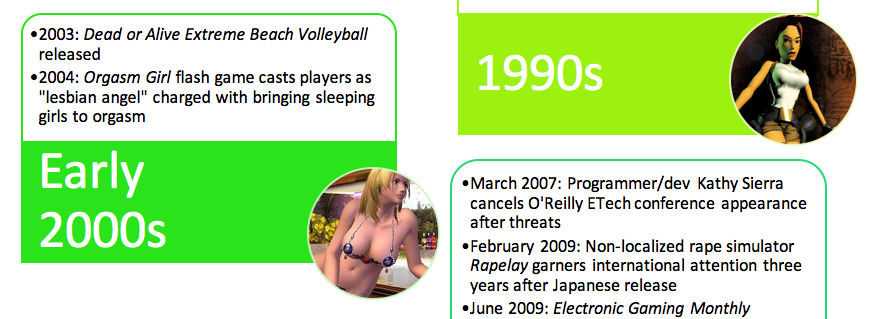
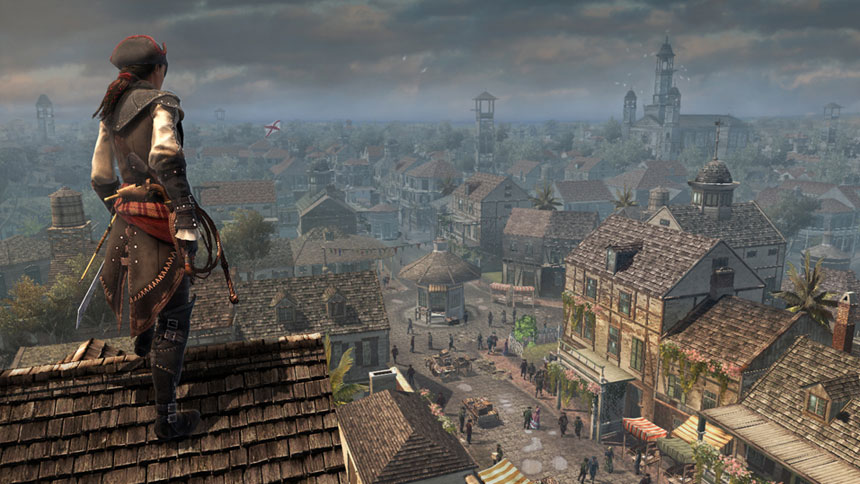
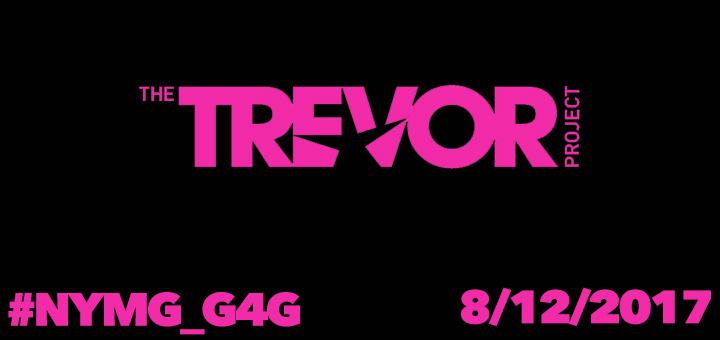
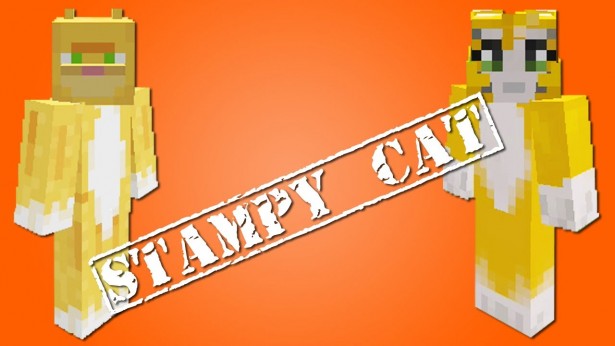
2 thoughts on “We Want to Exist: Pokemon GO Is a Lot of Things”
Excellent observations in this article. I think the game is making a lot of people question and converse about the privilege that characterizes different types of gaming– Pokemon Go combines a variety of privilege factors that to manifest in-game inequality gaps. Individuals with lots of time to play, who live in areas that are easy to walk around in (day or night) with Pokestops aplenty (I myself have been playing on a college campus; it’s a great place to play and I see many people out and about having fun with the app), with access to easy transportation, have a big advantage, and that’s obviously not even mentioning the expensive technical requirements (people with a 4g data plan have a massive advantage, as do those with more powerful smartphones, and extra battery packs). I’m having a blast with it– i’ve walked far more and met more people than I have in a long time, but your last sentence nails it: “it is impossible to play this game without acknowledging what privilege you must have to play it.”
I didn’t even explore the monetary and location privilege you need to play this game–and you nailed it too. I just hope the conversations lead to change in how this game (or others) is approached, and we see improvements for the positive.